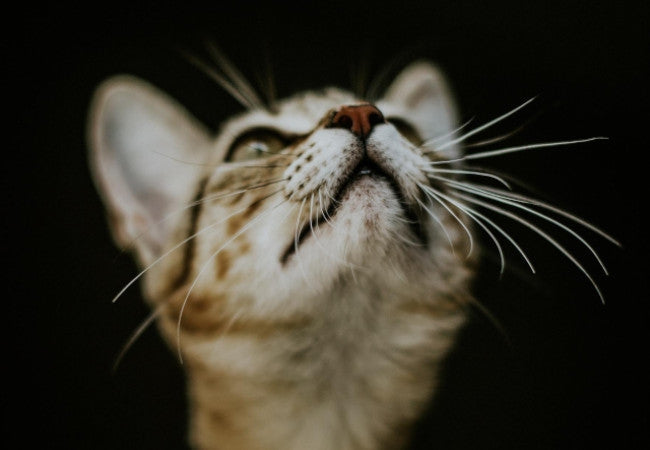Whiskers are anchored in a bed of nerves that provide cats with important information regarding their own orientation in space and help them navigate and be aware of things in their environment.
Whiskers, akin to other sensory organs, can suffer from information overload under the right circumstances. Also known as Whisker Stress, whisker fatigue is actually a condition among cats that can cause problems like lack of appetite, changes in mood and behaviour, and a lot of stress. If they get damaged or become stressed by coming into frequent contact with a surface, such as the side of a food bowl during mealtime, it can cause reactions ranging from irritation to pain, depending on the sensitivity of the whiskers and can quickly turn mealtime into a stressful and painful situation.
If your cats are exhibiting the following behaviors, they may be dealing with whisker fatigue:
- Pacing in front of the bowls
- Pawing at food and water and knocking it to the floor
- Making a mess around the bowls whilst eating or drinking
- Being reluctant to eat but appearing to be hungry
- Acting aggressive around food
Allegedly, the biggest culprits of whisker fatigue are narrow, high-sided deep bowls. Swap your cats' food bowls for ones that are specifically designed to be whisker-friendly, which are wide and shallow and won't disturb the whiskers and make mealtime much more relaxed and happier.
If your cats act in ways that seem strange to you around their food, they may be suffering from whisker stress. However, any food-related issues, such as refusing to eat altogether, require veterinary intervention.
Source: The New York Times
Featured image by Alice Castro

